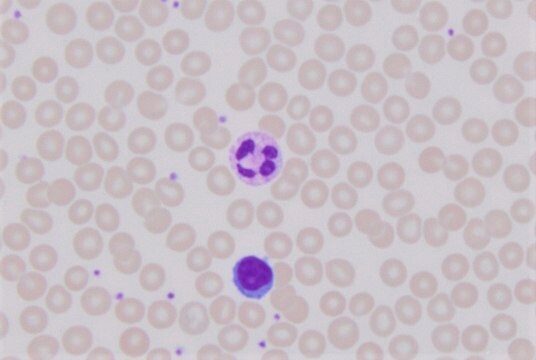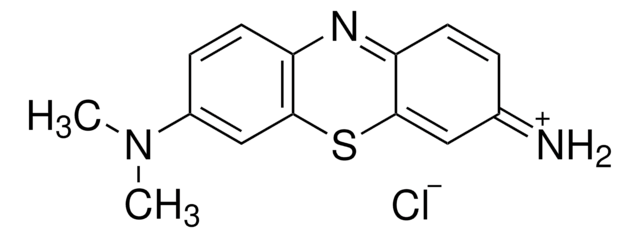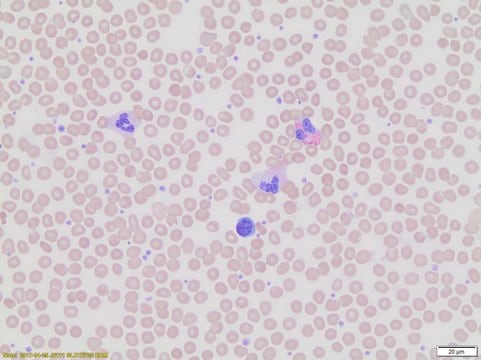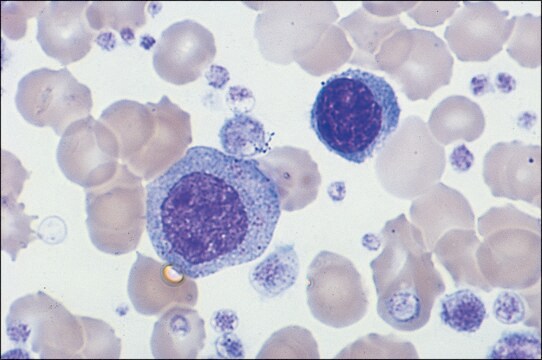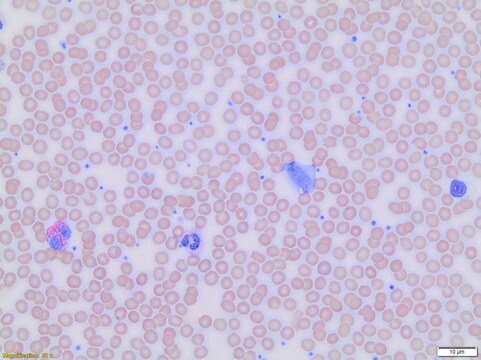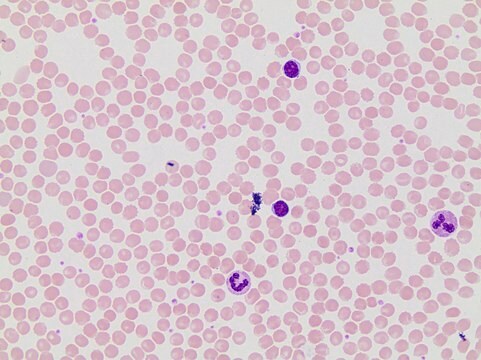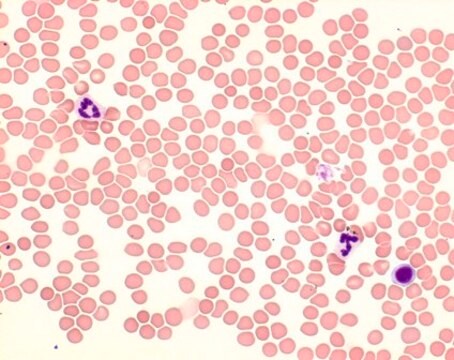GS128
Giemsa Stain, Modified
Synonym(s):
Giemsa Solution
About This Item
Recommended Products
form
solution
shelf life
Expiry date on the label.
IVD
for in vitro diagnostic use
concentration
0.4 % (w/v) in buffered methanol solution, pH 6.8, with stabilizers
pH
6.75-6.95
application(s)
hematology
histology
storage temp.
room temp
SMILES string
[Cl-].CN(C)c1ccc2N=C3C=CC(=[NH2+])C=C3Sc2c1
InChI
1S/C14H13N3S.ClH/c1-17(2)10-4-6-12-14(8-10)18-13-7-9(15)3-5-11(13)16-12;/h3-8,15H,1-2H3;1H
InChI key
NALREUIWICQLPS-UHFFFAOYSA-N
Looking for similar products? Visit Product Comparison Guide
Application
related product
Signal Word
Danger
Hazard Statements
Precautionary Statements
Hazard Classifications
Acute Tox. 3 Dermal - Acute Tox. 3 Inhalation - Acute Tox. 3 Oral - Flam. Liq. 2 - Skin Sens. 1 - STOT SE 1
Target Organs
Eyes,Central nervous system
Storage Class Code
3 - Flammable liquids
WGK
WGK 2
Flash Point(F)
51.8 °F - closed cup
Flash Point(C)
11 °C - closed cup
Choose from one of the most recent versions:
Already Own This Product?
Find documentation for the products that you have recently purchased in the Document Library.
Customers Also Viewed
Related Content
Learn about the clinical study of blood, blood-forming organs, and blood diseases including the treatment, prevention, and stains and dyes used in hematology testing.
An overview of the science and practice of bacteriology in clinical diagnostics. Learn more about the application of standard and special stains for microscopic analysis.
Our team of scientists has experience in all areas of research including Life Science, Material Science, Chemical Synthesis, Chromatography, Analytical and many others.
Contact Technical Service